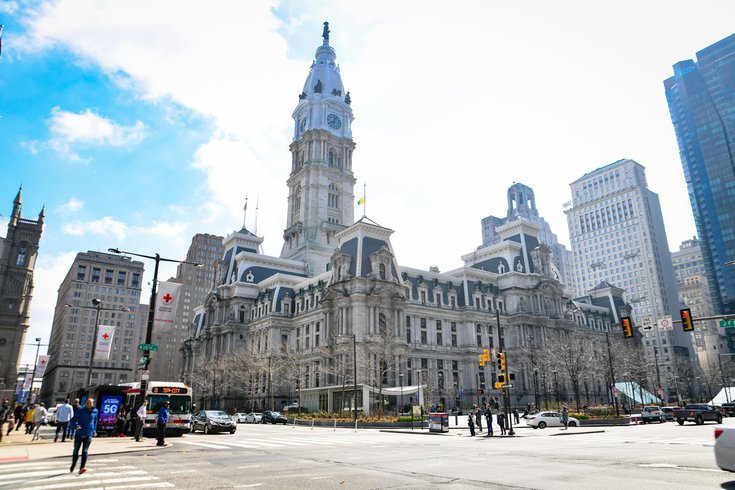
January 06, 2023
 Kate Frese/For PhillyVoice
Kate Frese/For PhillyVoice
Philadelphia will receive $20 million of its approximately $200 million portion of the national opioid settlement in 2023. The city will use the funding to support a mobile methadone program, expand overdose prevention services and make investments in Kensington.
The $200 million Philadelphia is receiving from national opioid settlements will be used to bolster an array of drug prevention and treatment efforts in the city, including its first mobile methadone service.
The funds, which will be paid over 18 years, stem from a multi-state agreement with four drug manufacturers and distributors accused of fueling the deadly opioid epidemic. Philadelphia will receive about $20 million in 2023.
Much of the money received during the next two years will be used to create the mobile methadone service, fund overdose prevention efforts and invest in Kensington, the epicenter of the city's opioid crisis for more than a decade.
The mobile methadone program will send vans with medical workers into neighborhoods to distribute methadone to residents battling opioid addiction – often on the same day that they register for the program. In 2021, the Drug Enforcement Administration began allowing existing methadone clinics to run mobile units without receiving special permission, an effort aimed at improving access to methadone in rural and underserved areas.
New Jersey, which implemented a mobile methadone program to treat incarcerated people in 2017, expanded its operations following the DEA ruling. Its vans, which are the size of school buses, offer medication, counseling and urine and blood tests.
The DEA's decision to lift a 13-year moratorium that effectively banned the expansion of mobile methadone clinics, was prompted by the surge in overdoses during the COVID-19 pandemic, which cut off treatment access and support for people living with addiction, the Associated Press reported.
In Philly, the use of mobile methadone vans — and an expansion of mobile wound care services, also to be funded by the settlement funding — will provide care to people who may be unable or unwilling to access traditional locations for addiction treatment.
"The overdose crisis has wrought incalculable harm on communities across the United States, and the grief and community trauma have compounded for years in Philadelphia as well — especially in Kensington and the surrounding neighborhoods," Mayor Jim Kenney said. "In the face of this evolving crisis, we are committed to prevention, treatment and healing and achieving longterm change."
In 2021, Kensington had the city's highest rate of overdose deaths and some of the highest rates of gun violence, officials said.
The city will invest $7.5 million into Kensington Health & Wellness Corridors, a planning effort that will provide resources for youth development, public safety, home repairs, rent relief and school improvements. New housing opportunities for longterm recovery, in Kensington and other neighborhoods, also will be funded from the opioid settlement.
Additional money will expand outreach efforts in neighborhoods highly impacted by the opioid crisis, with the goal of connecting people to treatment programs and services aimed at reducing the harms of drug use.
In particular, the city wants to reduce overdose risks of people in the juvenile justice system, establish faith-based communities as sources of trusted information and reach Black pregnant people who are using substances, WHYY reported.
The city is also accepting grant applications through its Overdose Prevention and Community Health Fund, which will distribute $3.5 million to organizations combatting the opioid crisis. Organizations can apply for $100,000 grants to fund specific programs and $20,000 grants to cover operating costs.
Though the fund is accepting applications from organizations throughout city, those from communities most impacted by the opioid crisis will be prioritized.
The impacts of the opioid epidemic in Philadelphia have been well chronicled. There were 1,276 unintentional overdose deaths in 2021, the city's highest total ever and a 5% increase from 2020, according to city officials. In Pennsylvania, 5,168 people died of overdoses in 2021.
At least 1 million overdose deaths have been reported nationwide since the beginning of the opioid epidemic, according to the National Center for Health Statistics.
The multi-state settlement requires opioid manufacturer Johnson & Johnson and distributors AmeriSource Bergen, Cardinal Health and McKesson to pay a combined $26 billion. Pennsylvania is receiving about $1 billion of that money, to be distributed throughout the state.
Funding from the settlement must be used to combat the opioid crisis and is restricted to a set of services including naloxone training and distribution for first responders, schools, community groups and families. Local governments can use the funds for medical programs, recovery services and treatment for incarcerated people.
In 2017, Delaware County became the first Pennsylvania county to sue opioid drugmakers for the costs of the epidemic, including treatment for people who became addicted to prescription painkillers. In August, Delco became the first county in the state to receive its first payment from the $1 billion Pennsylvania will receive from the $26 billion settlement.